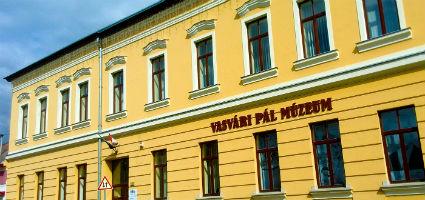2024. July 27. Saturday
András Jósa Museum - Pál Vasváril Museum - Tiszavasvári
 |
Address: 4440, Tiszavasvári Kálvin u. 7.
Phone number: (42) 911-013
E-mail: info@vasvaripalmuzeum.hu
Opening hours: 01.04-30.09.: Tue-Sun 9-17
01.10-31.03.: Tue-Sun 8-16 |
The institution holds the local history and ethnographic memory of the town of Tiszavasvári, earlier Bűdszentmihály. The compilation was added significant archeological and natural sciences material from the 1980's. The documents of the Alkaloida Pharmacy Factory are included in it eg. but also the Pharmaceutical and Medicine Exhibition of Szabolcs - Szatmár - Bereg County.
